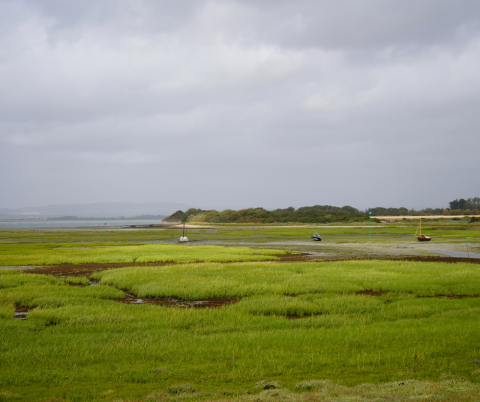Assessing Climate Change Risk of Rural Coastal Plain Communities (2023-2024)
Saltwater intrusion and sea level rise (SWISLR) are rapidly altering the structure and function of coastal plain ecosystems and placing new constraints on coastal communities’ lifestyles. Though SWISLR is a global issue, its effects vary greatly across regions and communities. This variation leads to governance challenges that include agreeing upon the scope and nature of the problem, working collaboratively with impacted communities and equitably allocating resources to combat SWISLR. Despite SWISLR’s widespread impact, most research efforts up to this point have been localized and disconnected.
The major goals of this project were to amplify the voices of rural community members currently facing SWISLR and synthesize currently available research on SWISLR impacts. Team members reviewed and synthesized existing research pertaining to SWISLR in the North American Coastal Plain through a curated data repository. Using the data repository, team members examined survey and interview methods and identified gaps in existing SWISLR scholarship.
Learn more about this team’s work by reading their team profile.
Timing
Summer 2023 – Summer 2024
Team Outputs
Perceptions of Saltwater Intrusion and Sea Level Rise in Coastal Communities (Team profile; 2024 Fortin Foundation Bass Connections Virtual Showcase)
Assessing Climate Change Risk of Rural Coastal Plain Communities (Interactive display presented at Fortin Foundation Bass Connections Showcase, April 17, 2024)
Database of SWISLER social science studies
Braydon Madson, Gabrielle Moreau, Kiera O'Donnell, Henry Park, Wenrui Qu, Nathan Yang. 2024. Saltwater Intrusion & Sea Level Rise: Changes and Challenges for the Social-Ecological Systems on the Coastal Plain. Albemarle-Pamlico National Estuary Partnership Blog.
See related Data+ project, Assessing Climate Change Risk of Rural Coastal Plain Communities (2023).

Team Leaders
- Emily Bernhardt, Arts & Sciences-Biology
- Ryan Emanuel, Nicholas School of the Environment-Environmental Sciences and Policy
- Kiera O'Donnell, Trinity College of Arts and Sciences–Biology–Postdoc
/graduate Team Members
-
Braydon Madson, Public Policy Studies-PHD
-
Wenrui Qu, Masters of Public Policy
/undergraduate Team Members
-
Gabrielle Moreau, Robertson Scholarship - UNC
-
Heejae Park, Public Policy Studies (AB)
-
Nathan Yang, Computer Science (BS)
/zcommunity Team Members
-
The Saltwater Intrusion and Sea Level Rise Research Coordination Network
